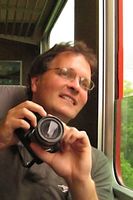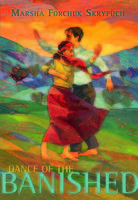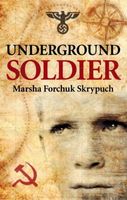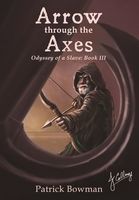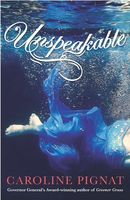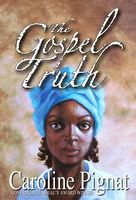Kid Lit Can, with Susan Hughes: Q and A with 2015 Geoffrey Bilson Award for Historical Fiction Nominees, Part I
By Susan Hughes & Submitted by kateburgess
Welcome back to another year of kid lit updates, info, and author chats! First up, I want to share with you the list of the 2015 Canadian Children’s Book Centre Award nominees . The CCBC sponsors 8 awards for excellence in genres from picture books, nonfiction, science fiction and fantasy to mystery, YA, and historical fiction. The names of the winners will be announced in November.
Having written one historical fiction MG, The Island Horse (Kids Can, 2012), I know the challenges and delights of combining fact with creative narrative. So this month I’m celebrating the historical fiction genre by chatting with the three terrific authors whose five books have been nominated for the Geoffrey Bilson Award for Historical Fiction for Young People. Yup, the math does seem strange but, in fact, two of the authors have had two books each nominated for the award!
A big welcome to Patrick Bowman, Marsha Skrypuch and Caroline Pignat.
Patrick Bowman is the author of the Odyssey of a Slave trilogy. He grew up in Toronto and sees no reason to move. Find out more about Patrick’s books at www.patrickbowman.ca.
Marsha Forchuk Skrypuch of Brantford, Ontario, is the author of nineteen books for young people, including picture books, novels and narrative non-fiction. Her specialty is writing about those bits of history that have been shoved under the carpet. Marsha’s website is www.calla.com.
Caroline Pignat is the Governor General’s Award winning author of six highly acclaimed novels. She teaches grade 12 Writer’s Craft in Kanata, Ontario where she lives with her family. Caroline’s website is www.carolinepignat.com.
Susan Hughes:
Patrick, Marsha, and Caroline, thank you for agreeing to chat with me. Patrick, your book Arrow through the Axes has just been nominated for the Geoffrey Bilson Award for Historical Fiction for Young People! Wow!
Patrick Bowman:
Thank you! I don’t know if I’m more happy or astonished. Hmm. Definitely more astonished.
Your CanLit News
Subscribe to Open Book’s newsletter to get local book events, literary content, writing tips, and more in your inbox
SH:
And Marsha and Caroline, you each have two books nominated for this award: Marsha, your Dance of the Banished and Underground Soldier, and Caroline, your The Gospel Truth and Unspeakable. Double wow x 2!
Marsha Skrypuch:
I am THRILLED with this double recognition. I love all my books like a mother loves her children and in 2014 I happened to have two historical novels published. Both took a lot of love, emotion, inspiration, research and just plain hard work to write. Each is utterly different from the other, so to have both honoured is beautiful.
Caroline Pignat:
I’m blown away actually. I love reading historical fiction, so to be honoured for writing it is so amazing. Plus, The Gospel Truth is also up for the 2015 Amy Mathers Teen Book Award for excellence in teen fiction. (Yay for free verse and historical fiction!)
SH:
How did each of you arrive at writing historical fiction?
PB:
We have so many ideas today that come from Homer’s classic stories, The Iliad and The Odyssey. The siren? Originally a sea creature whose song lured sailors to their doom. The trojan computer virus? Originally a giant wooden horse that the Greeks hid inside to sneak into the city of Troy. Even our word odyssey, for a long and difficult journey, comes straight from Homer’s tale The Odyssey. I wanted to write a version of this story that would be accessible to young adults, because it’s an amazing adventure story and very relevant today, but very rarely read anymore.
MS:
I consider myself a historical detective and am drawn to periods of history that have been forgotten, either unintentionally or for political reasons. I plunge myself into research – archives, first person accounts, old documents, photos, and so on – and as I find out more, the characters and their dilemmas reveal themselves to me.
CP:
My novel Greener Grass (Red Deer, 2003) started out as a homework assignment when I was in grade 11 Writer’s Craft. I’d just learned about the Great Famine while visiting relatives that summer. Usually the historical events in my novels hook me with a simple fact:
• After it was struck, the Empress of Ireland sank in 14 minutes
• Of the 1477 souls aboard, 1012 drowned. Only one stewardess survived.
• Stoker William Clarke survived the sinking of the Titanic and the Empress.
The more I learn about an event and the people who lived through it, the easier it becomes to imagine myself there.
SH:
Where is the line between history and fiction and how do you straddle it?
PB:
I struggled with that at first, even wondering whether to make the Greeks use abbreviations, as we don’t know if they really did. I decided they should, because otherwise they sounded like pretentious nitwits.
So here’s the line I drew. I’ve tried very hard not to contradict anything in The Odyssey. But Odysseus (who tells the original story) didn’t know everything, and didn’t bother to mention details like slaves anywhere in The Odyssey although we know there would have been some. So I feel absolutely free to add lots of details that Homer might have left out or not known. Alexi, for example.
MS:
The historical events in my novels are factual. I even provide my publishers with documentation and my readers with extensive notes at the back of the books. The characters are my creations, based on composites of real people of the time.
CP:
I do a great deal of research to make the setting and events as accurate as I can. I include historical characters, like Dr. Grant (Unspeakable), but I’ve lowered the age of Dr. Bergman (The Gospel Truth), who is based on abolitionist Alexander Milton Ross, to suit the plot. My main characters are fictional, but their experiences evolve from my extensive research of primary sources (diaries, interviews, biographies and so on) of people from that period. The facts in historical fiction hook us—but the fiction engages, drawing us in to the author’s rendition of that time and place. I like ending with an Author’s Note to highlight fact from fiction.
SH:
What do you enjoy most about writing historical fiction for children?
PB:
There’s something I’ve had happen only three or four times as I’m writing, but it’s absolutely magical when it does. You’re writing a scene, you have a plan for it: someone will do this, someone else reacts, and the scene will end in such-and-such a way. And then suddenly it’s like the character takes control of your fingers and does something totally different and unexpected.
And you sit back and go “Wow. That is so much better than what I was planning.” And you rewrite the rest of that scene, chapter, or even that whole subplot to accommodate it.
MS:
Philip Pullman said it best: "There are some themes, some subjects, too large for adult fiction; they can only be dealt with adequately in a children's book."
CP:
I love learning all I can about that particular time. I kind of obsess over it, actually.
My husband: Where’s mom?
My son (rolling eyes): In the 1800’s.
My husband: Well, tell her dinner is ready.
I get so caught up in the treasure hunt of research that I have to force myself to sit down and start writing because the manuscript deadline is looming. Fortunately, the research, envisioning, and all the cool things I’ve learned along the way makes the writing flow. It makes the world I’m writing feel real. I rarely get writer’s block if I’ve done my research.
The views expressed by Open Book columnists are those held by the authors and do not necessarily reflect the views of Open Book.
Susan Hughes is an award-winning author of children's books — both fiction and non-fiction — including The Island Horse, Off to Class, Case Closed?, No Girls Allowed and Earth to Audrey. She is also an editor, journalist and manuscript evaluator. Susan lives in Toronto. Visit her website, www.susanhughes.ca.
